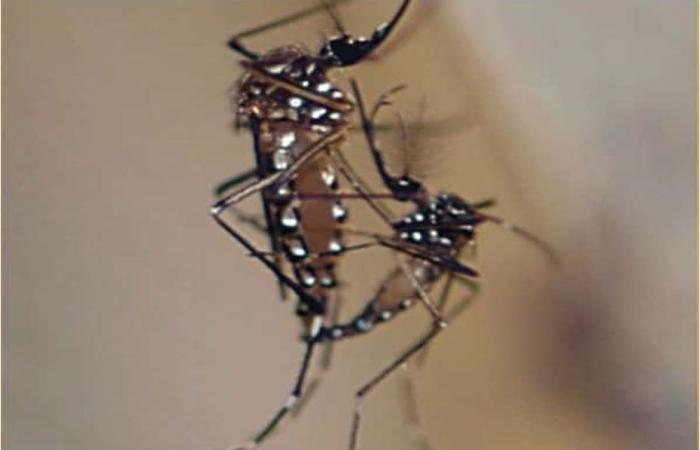A hope of putting an end to dengue fever, zika, or even malaria… a new technique aimed at killing female mosquitoes, vectors of these diseases, is currently being tested by researchers in Australia. They make male sperm toxic and, after mating, these ladies succumb, according to their findings. Enough to act, without harming other species.
Sperm”toxic“Genetically modified mosquitoes could help fight the transmission of tropical diseases, explain Australian scientists in a study published yesterday (Tuesday January 7, 2025), in the journal Nature Communications. Their technique, known as “toxic male“, consists of the breeding of mosquitoes whose sperm contains venomous proteins, fatal for females after mating.
The objective is thus to kill populations of female insects, which are the only ones to bite and suck blood, with the risk of inoculating their victims with potentially lethal infectious diseases, such as malaria or dengue fever.
According to scientist Sam Beach, from Australia’s Macquarie University, this method “could work as quickly as pesticides, without harming beneficial species“.
This innovative solution could transform the way we manage pests, offering hope for healthier communities and a more sustainable future.
Sam Beach, co-author of the study
The first tests, to prove the concept, focused on vinegar flies, a species commonly used in the laboratory due to its short lifespan.
Female subjects who have mated with males”toxic” have seen their life expectancy considerably reduced, report the scientists.
Maciej Maselko, another researcher from Macquarie University, said the next step was to carry out tests on mosquitoes, “in order to be sure that there is no risk, neither for humans, nor for other non-target species“.
Genetic engineering, which consists of manipulating the DNA of organisms, is a technique long used to control populations of mosquitoes responsible for transmitting diseases, in particular by rendering cohorts of males sterile.
But computer simulations show that the method “toxic” can be much more effective, says the team of scientists.






